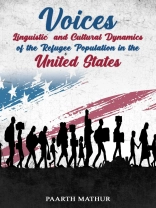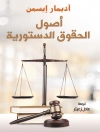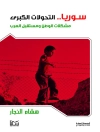Voices: Linguistic and Cultural Dynamics of the Refugee Population in the United States, ’ Paarth Mathur presents a profound exploration of the intricate tapestry woven by the linguistic and cultural experiences of refugees. Through meticulously researched chapters and compelling narratives, this book delves into the impact of displacement on language and identity, illustrating the resilience and adaptability of refugee communities.
Mathur begins with a historical overview, tracing the journey of refugees from post-World War II Europe to contemporary crises. The book then delves into the role of language in shaping refugee identities, highlighting how linguistic diversity enriches host communities and fosters cross-cultural understanding.
Personal stories of refugees like Alia from Syria and Roderick from Zimbabwe provide poignant insights into the challenges and triumphs of adapting to new cultural landscapes.
The author also examines the phenomenon of linguistic evolution within refugee communities, shedding light on how languages transform and adapt in response to new environments. The inclusion of sign languages underscores the importance of non-verbal communication in bridging cultural divides.
Furthermore, the book addresses the pivotal role of young refugees in cultural integration, emphasizing the need for supportive educational and community structures.
’Voices’ is not just a narrative of struggle and survival but a celebration of the rich cultural contributions refugees bring to their new homes. It calls for a more inclusive and compassionate approach to refugee resettlement, urging readers to recognize the interconnectedness of our global family. Through this book,
Paarth Mathur inspires a deeper appreciation for the linguistic and cultural dynamics that shape our diverse societies.












